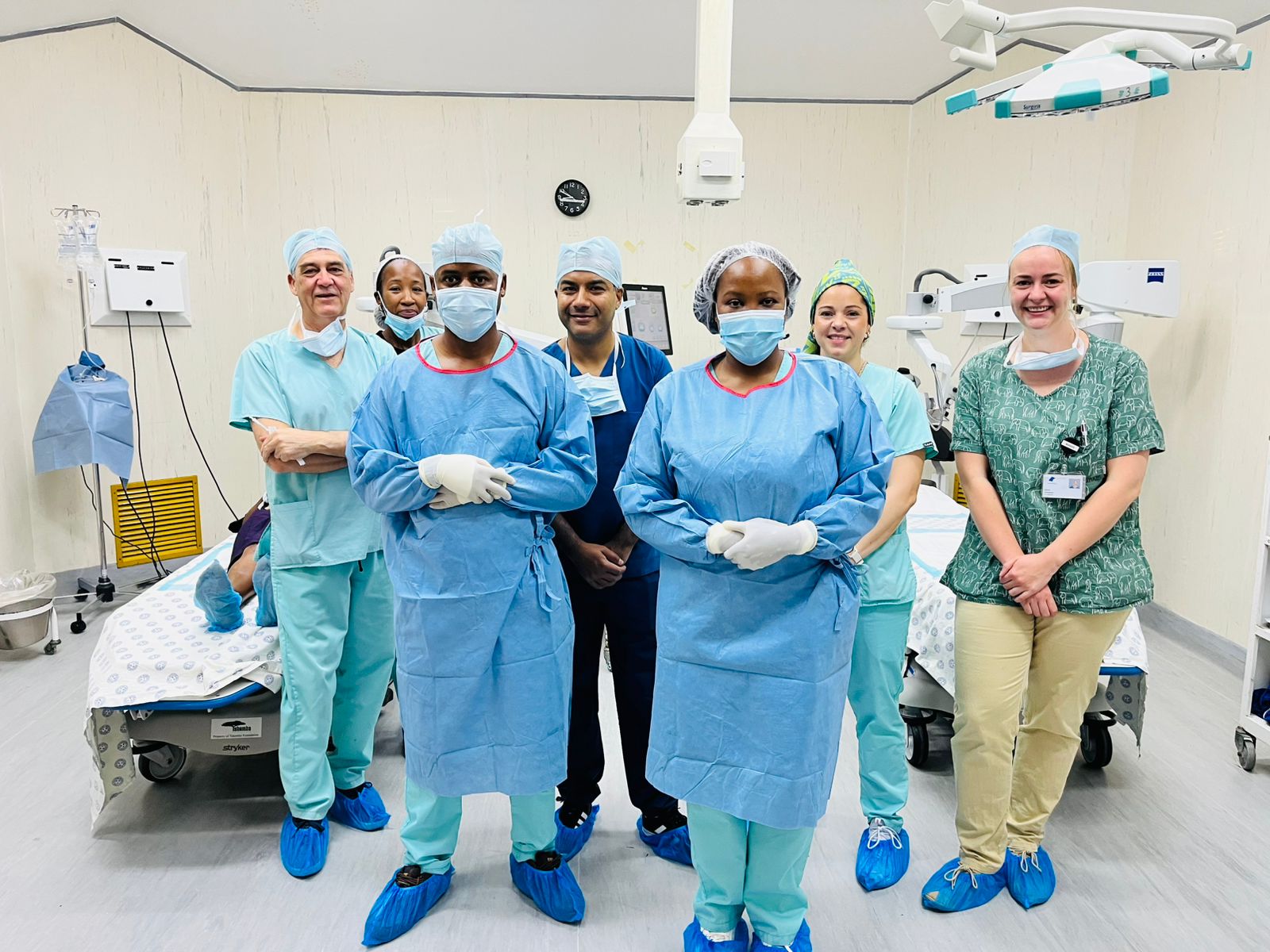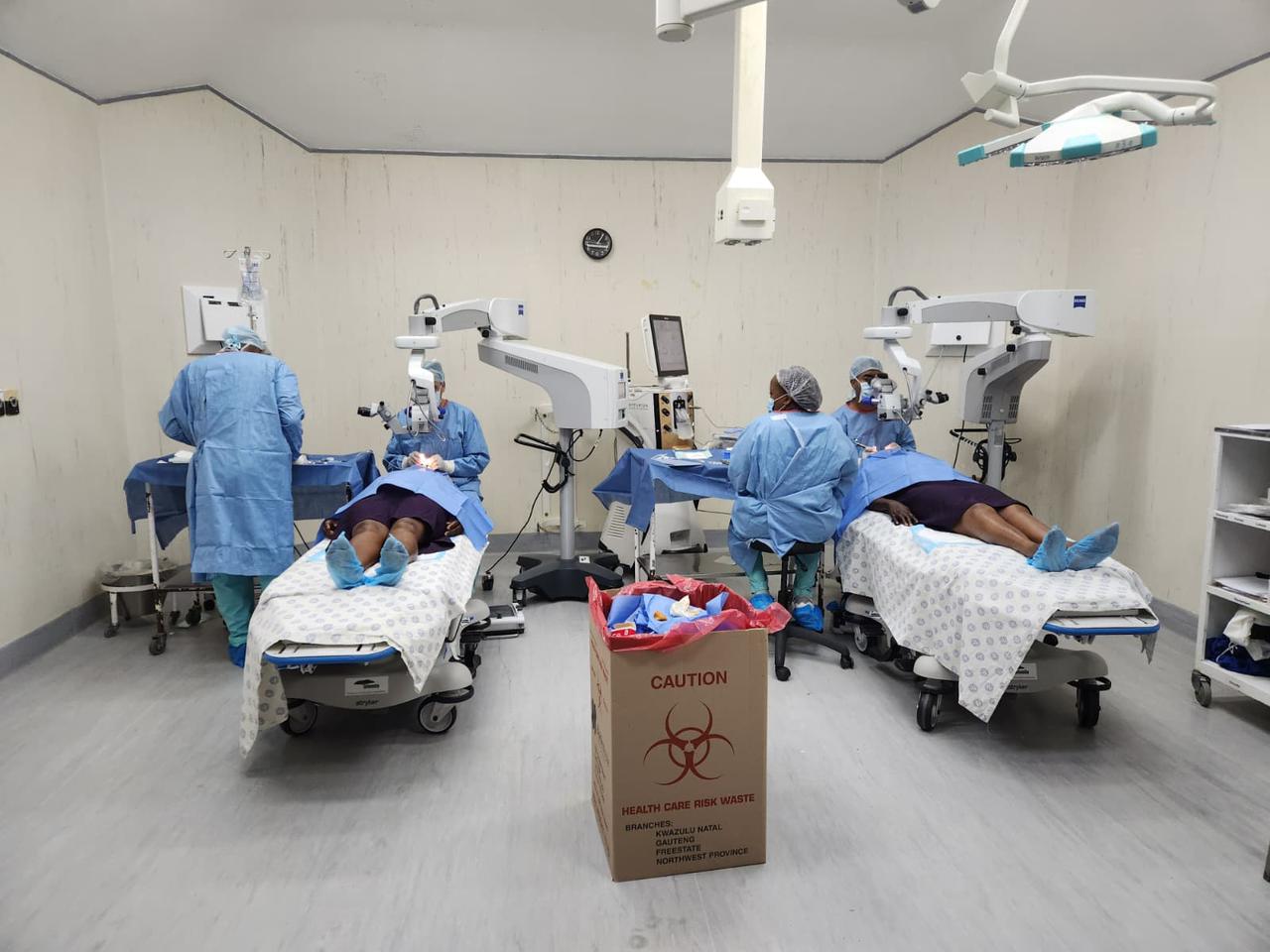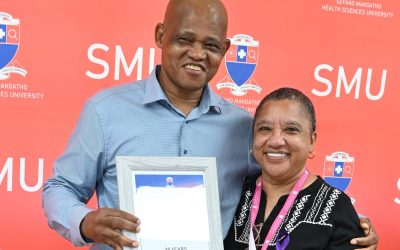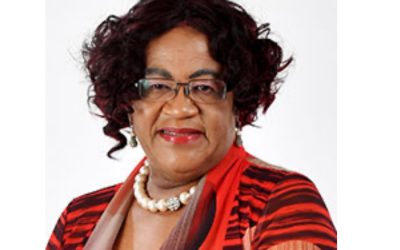For patients in rural Mpumalanga, restored sight is more than medical care — it is the gift of independence. Recently, Ophthalmologists from Sefako Makgatho Health Sciences University (SMU) partnered with the Tshemba Foundation to provide voluntary consultations and cataract surgeries at Tintswalo Hospital in Acornhoek, Bushbuckridge.
 The Tshemba Foundation, a charity dedicated to closing healthcare gaps in underserved communities, provided accommodation for medical volunteers at its lodge in the Moditlo Game Reserve. Beyond lodging, the foundation renovated the eye clinic and theatre, equipping both with modern technology and essential consumables.
The Tshemba Foundation, a charity dedicated to closing healthcare gaps in underserved communities, provided accommodation for medical volunteers at its lodge in the Moditlo Game Reserve. Beyond lodging, the foundation renovated the eye clinic and theatre, equipping both with modern technology and essential consumables.
Hospital staff played a crucial role in ensuring smooth operations. Nurses and support teams worked weekends to assist with patient consultations, prepare for theatre, and manage post-operative follow-ups. “Their commitment ensures patients receive complete care from diagnosis to recovery,” said Prof Jan Olivier, Head of Ophthalmology at SMU.
Prof Olivier led the medical team alongside Dr Sachin Bawa, an SMU graduate now in private practice in Edenvale. Dr Bawa brought three experienced scrub sisters from private hospitals to assist in the theatre. All volunteers covered their own transport and meals, with accommodation provided by the foundation — a clear demonstration of service over self.
 The results were remarkable. In just two days, Olivier consulted 150 patients. Over the following two days, he and Bawa performed 55 cataract surgeries. Patients typically arrive on the day of surgery, return home immediately afterwards, and come back the next day for follow-up. This approach maximises efficiency while minimising disruption to patients’ lives.
The results were remarkable. In just two days, Olivier consulted 150 patients. Over the following two days, he and Bawa performed 55 cataract surgeries. Patients typically arrive on the day of surgery, return home immediately afterwards, and come back the next day for follow-up. This approach maximises efficiency while minimising disruption to patients’ lives.
For the medical team, the reward is profoundly human. “Every restored eye reminds us of the urgent need for accessible healthcare in rural South Africa,” Olivier reflected. Cataracts, a leading cause of blindness worldwide, can often be corrected in under 30 minutes when skilled care is provided.
The Tshemba Foundation describes its mission as connecting healthcare professionals to rural communities where they can make the greatest impact. The initiative exemplifies how collaborative partnerships between academia, private practice, and local hospitals can transform lives.
Bawa highlighted the broader significance: “This work isn’t just about surgery; it’s about giving people independence, dignity, and hope. Every patient we help motivates us to continue bridging healthcare gaps.”
For SMU’s Department of Ophthalmology, these visits are more than clinical exercises — they reflect the university’s mission to advance healthcare in South Africa through compassion, innovation, and excellence. By engaging students, hospital staff, and private practitioners in outreach, SMU is cultivating a culture of service and leadership that will strengthen the country’s healthcare system.
As Olivier summarised, “When expertise, passion, and community converge, we don’t just restore sight — we change lives.”
By Tumelo Moila



